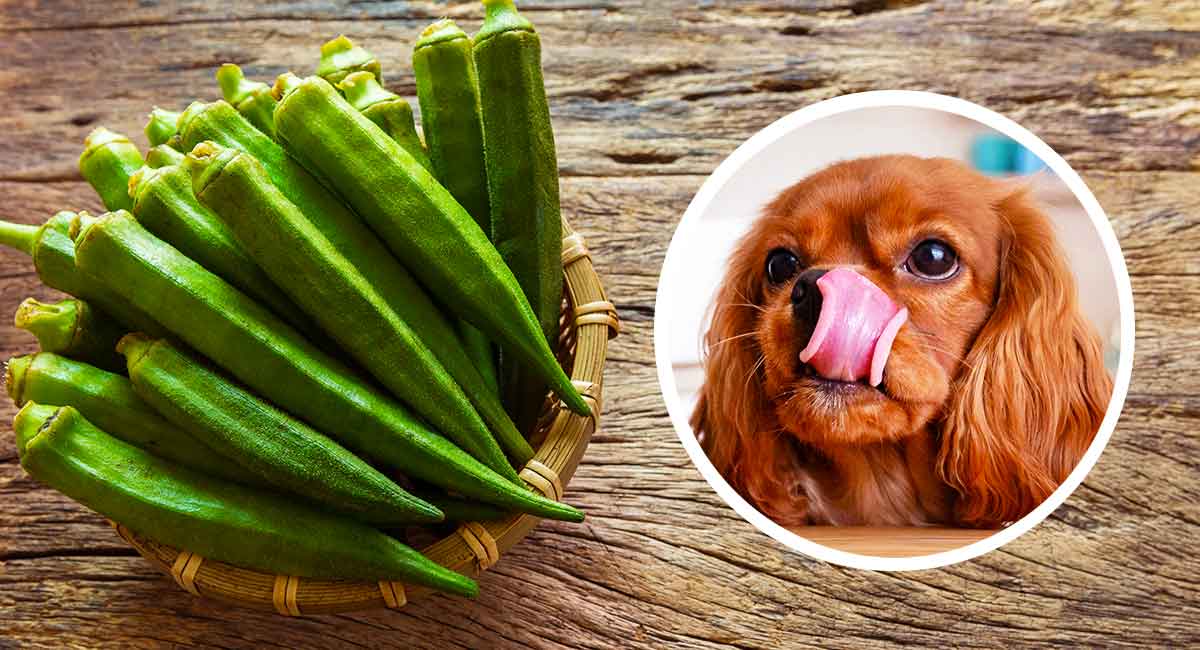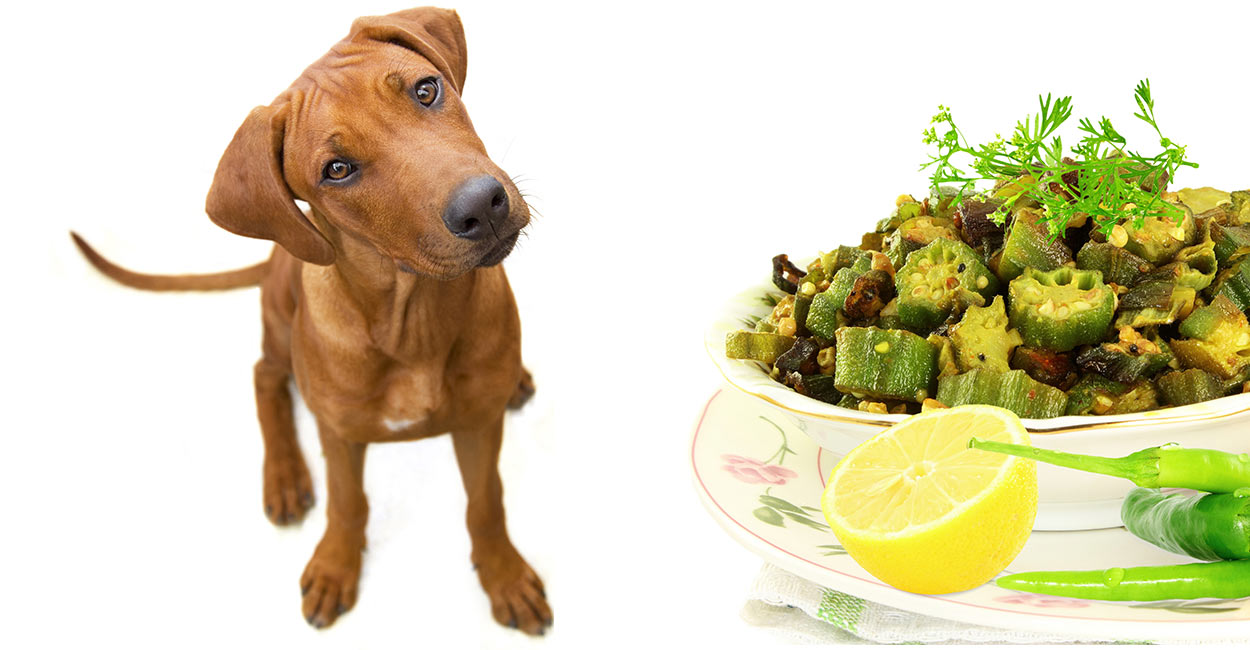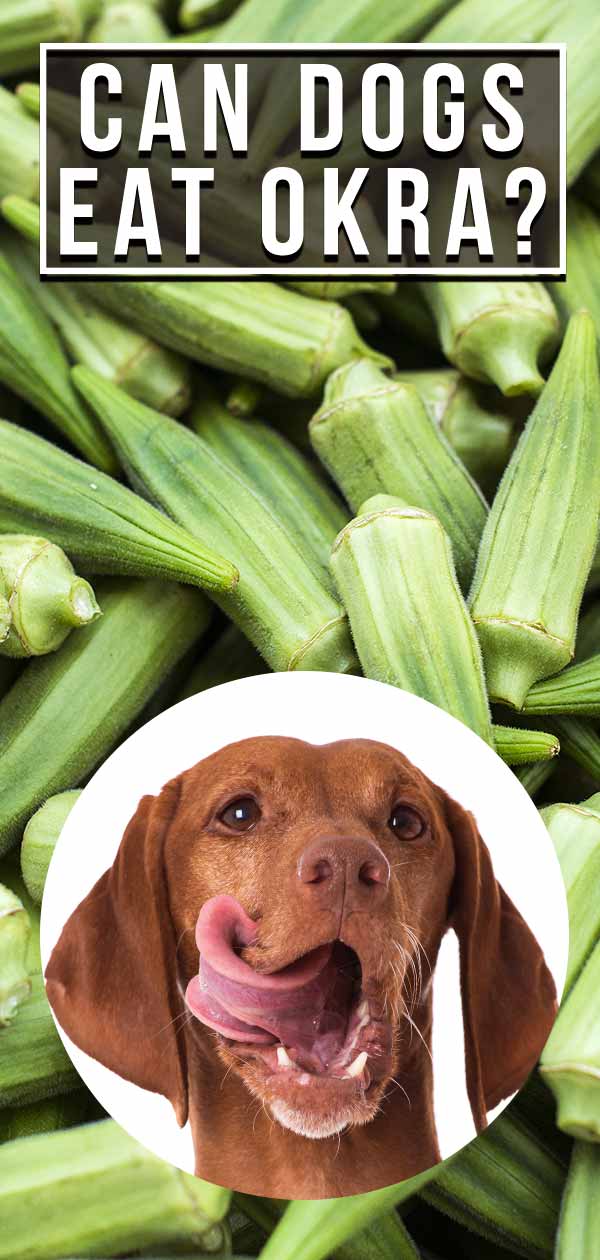[ad_1]

Dogs can eat okra, but you can’t just hand them a bunch for dinner. Although the nutrients in the plant are a good source of energy, fats and proteins, our pups aren’t designed to digest a lot of vegetable matter. You need to make sure the okra is cooked plainly and not fried. And make sure there is no added butter, salt or fat either. Plain okra probably won’t hurt them if given in moderation, but it also won’t have any health benefits beyond their regular complete kibble.
Contents
Pickled and fried okra are not safe for dogs to consume, and should always be avoided.
Okra is one of the oldest cultivated crops, and it originated in Ethiopia. It’s a multipurpose crop, as its various parts can be used for a variety of purposes. The okra plant is used in Ayurvedic medicine. The pods can be eaten cooked or raw and can also be turned into flour.
Okra seeds can even be roasted and used in place of decaffeinated coffee. Today, this versatile green vegetable is widely distributed around the world. You can find it in Africa, Asia, southern Europe, and the US.
Nutritional Considerations
Okra is not toxic to dogs and they can even safely consume the seeds. However, just because their bodies can tolerate something, it doesn’t necessarily mean it good for them. Or that it is safe for them in all forms.
We eat the tender green fruits of the okra plant, which are rich in high-quality oils and proteins, polyunsaturated fatty acids like linoleum acid, and fiber. Okra also has a high antioxidant activity level.
The dietary fiber it provides comes in a soluble form of gums and pectin designed to lower serum cholesterol. There’s a bit of insoluble fiber as well, which is good for the gastrointestinal (GI) tract. The protein in okra has an amino acid composition that’s similar to that of soybeans but with a higher efficiency ratio. This makes it a good protein supplement.
Okra also contains carbohydrates and vitamins, including high levels of vitamin C, folate, calcium, and potassium. It’s believed to also have purgative properties. It includes mucilage that washes away toxic substances because it binds cholesterol to it.
Balanced Diets
Too much human food may make your dog’s diet inadequate in meeting their nutritional needs. If they fill up on treats, even healthy ones, they may be less inclined to eat their dog food, which is balanced for canine dietary needs.
Also, if your furry friend devours all the delicious morsels you feed them, meals and snacks alike, this can result in unhealthy weight gain. Either way, okra and all forms of treats should be given sparingly.
The idea of feeding your dog fruits and vegetables as part of their diets is a recent one. They can get all the nutrients they need from carnivorous diets.
A bite or two of okra can certainly still be part of a dog’s balanced diet. But your dog’s guts may not like it quite as much as you do!
Potential Health Issues
Dogs may suffer bloated stomachs, gas, diarrhea, and other signs of gastrointestinal distress from too much vegetable matter in their diets.
First, you need to make sure that the okra isn’t heavily salted or buttered or covered with fatty flavor enhancers.
Secondly, do not feed your dog fried foods. As with humans, fried foods are bad for dogs and can lead to obesity and heart issues.
Lastly, you should be cautious when introducing new foods like okra.
Dogs, like humans, experience allergies. And humans do experience okra allergies. Remember that dogs can develop allergies later on in life.
This means even if your dog has been fine with some foods before, that won’t always be the case. Symptoms of allergies in dogs include recurring skin problems and gastrointestinal issues that result in stomach pain or diarrhea.
Okra is not toxic for dogs, but you should still not feed okra in anything but moderate amounts to your dog.
Can Dogs Eat Raw Okra?
If your furry friend doesn’t oppose the slimy texture of the mucilage inside okra, they can happily crunch away on a few raw cubes.
Raw okra is perfectly safe both for humans and canines. Okra in its natural state also doesn’t run the same risk of being contaminated with additives dangerous to doggie health like salt, garlic, onions, or spices.
Can Dogs Eat Cooked Okra?
Dogs can certainly eat cooked okra, as long as it isn’t fried and hasn’t been cooked with any flavor-enhancing additives.
Onions, chives, and garlic are staples of flavorful cooking, but they are also dangerous to dogs. Ingredients like these have the potential to cause gastrointestinal trouble and damage to red blood cells.
Similarly, chilies and spices can also cause digestive distress. If you are cooking your dog up some okra, just keep it plain and simple.
Can Dogs Eat Fried Okra?
Are you a big fan of fried foods and wondering, “Can dogs eat fried okra?”

Basically, you should avoid feeding fried okra, let alone any fried food to your pup. Frying adds fat and empty calories to any food. And the emptier the calories that you give your dog, the less nutrition it gets.
Fried foods are very high in fats. In some cases, a third of a fried product’s weight is made up of fat!
Saturated animal fats like the ones used in fried fats are associated with obesity and coronary heart disease in humans. Frying is also known to create carcinogens that lead to colon cancer or other health issues.
Fried foods aren’t good for humans, and they aren’t good for dogs either.
Can Dogs Eat Pickled Okra?
In general, pickled foods are not ideal for dogs and pickled okra is no different. Like cooked foods, salt and spices are not good for them.
Can Dogs Okra Seeds?
They can be a bit slimy, so the texture may be off-putting to your dog. But yes, okra seeds are okay for dogs to eat.

[ad_2]
Source by [author_name]





